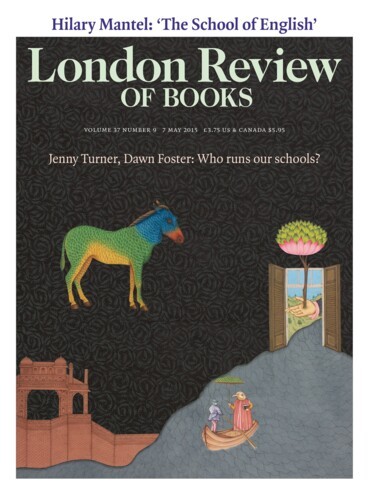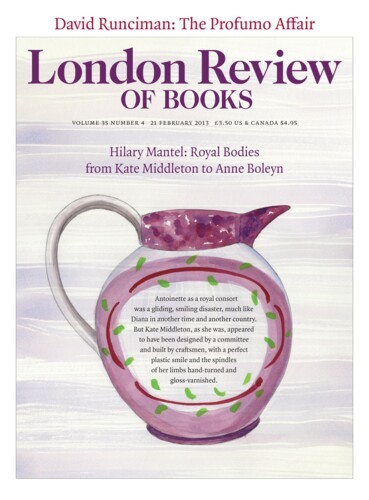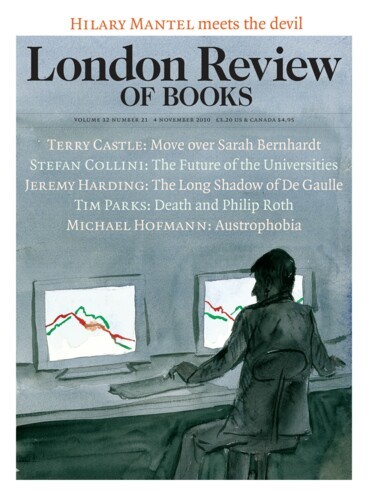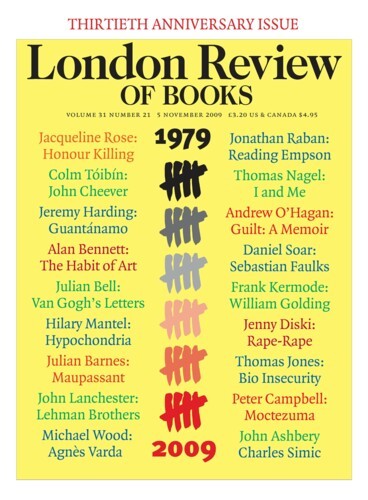Story: ‘The School of English’: ‘The School of English’: A Story
Hilary Mantel, 7 May 2015
The floor of the panic room struck cold into Marcella’s feet. The salary promised was small, but she needed a roof over her head, and here was that roof: NW8, live-in, for flexible person must like dogs, with experience of specialist laundry and helpful attitude, non-smoker. At a good distance north of here, there was a room over a fried chicken shop, where certain of her countrywomen gathered and passed the Lady hand to hand, as if they had never reached the age of the internet: they were not digital, they could not recharge.




